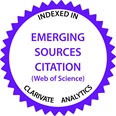Tytuł
Racjonalne gospodarowanie lekami w zakresie opieki farmaceutycznej i lekarskiej
Abstract
Medical and pharmaceutical care aims at the most efficient, the safest and the most convenient pharmacotherapy, as well as narrowing down unnecessary investment in health care. A condition for streamlining medicine management is the cooperation between a physician, a pharmacist and a patient. Both physicians and pharmacists find it necessary in the majority of cases to inform their patients about the economic aspect of their therapy. Nearly half of the patients recognize such necessity. Based on the survey, it can be assumed that as many as 18% of the sick would either occasionally or never dispense their prescriptions, and the price can be a barrier for 39% of them. The price of a medicine, next to its effectiveness and safety, is a major criterion in accepting or rejecting therapy. Patients' tolerance to a potential increase in the price of a medicine is inconsiderable. 77% of the patients would like to be informed of the existence of a cheaper equivalent, if it actually exists, and only 35% of them know such equivalents. Nearly half of the patients would always or sometimes ask a doctor to prescribe a cheaper equivalent.
Abstrakt
Celem opieki lekarskiej i farmaceutycznej jest najskuteczniejsza, najbezpieczniejsza i najbardziej dogodna dla pacjenta farmakoterapia oraz ograniczenie zbędnych nakładów na ochronę zdrowia. Warunkiem racjonalizacji gospodarowania lekami jest współpraca lekarza, farmaceuty i samego pacjenta. Zarówno lekarze jak i farmaceuci w większości przypadków widzą konieczność informowania swoich pacjentów o aspektach ekonomicznych związanych z terapią. Taką potrzebę dostrzega prawie połowa pacjentów. Na podstawie przeprowadzonych badań można stwierdzić, że aż 18% chorych czasami lub nigdy nie realizuje przepisanych recept, dla 39% barierą może być cena. Cena leku obok skuteczności i bezpieczeństwa to najważniejsze kryterium w akceptacji lub odrzuceniu terapii. Mała jest tolerancja pacjentów związana z potencjalnym podwyższeniem ceny leku. 77% pacjentów chciałoby być informowanych o istnieniu tańszego odpowiednika, jeśli taki istnieje, tylko 35% zna takie odpowiedniki. Prawie połowa pacjentów zawsze lub czasami prosi lekarza o przepisanie najtańszego odpowiednika.
Recommended Citation
Czech, M., Olszewski, T., & Ścibor, E. (2006). Efficient Management of Medicines within Pharmaceutical and Medical Care. Problemy Zarządzania, 4(12), 38-46. Retrieved from https://press.wz.uw.edu.pl/ems/vol4/iss12/3
First Page
38
Last Page
46
Page Count
8
Publisher
University of Warsaw







